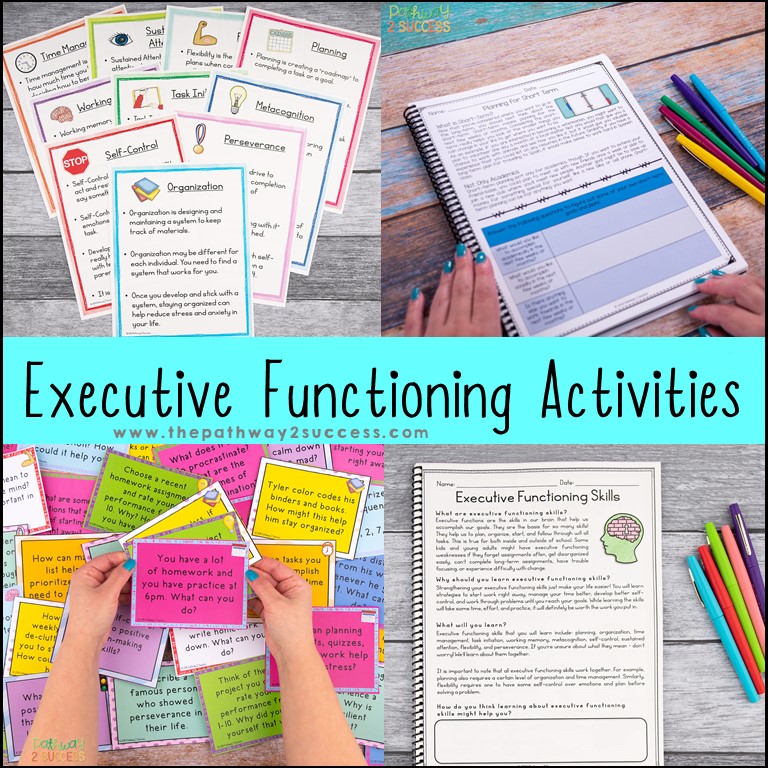
Students who struggle with executive functioning skills often have difficulties during classroom instruction and working sessions. That is because these are times when they are extensively using skills like attention, task initiation, time management, organization, and self-control.
Accommodations are supports that can be put in place to help students with executive functioning needs. The goal of the accommodations and supports is to help each learner access the curriculum in a way that helps them learn, grow, and succeed.
Below are some accommodation strategies specific to working and learning in the classroom.

Accommodations for Classroom Instruction & Working Sessions
Visual Timer. Use a visual timer to show the passage of time during working sessions. This can help students build a better understanding of time (time management) while also serving as a prompt to stay focused.
Provide Copy of Notes. For some students, providing a copy of the notes from the teacher (or another student) may be beneficial. This may help some learners pay attention during class discussions and lectures better, as they don’t have to struggle with writing while trying to listen at the same time.
Brain Breaks. Mindful brain breaks and movement breaks promote attention, memory, and perseverance. Consider providing brain breaks throughout the day as part of a daily plan.
Preferential Seating. Consider where in the classroom a particular student learns best (away from distractions, in the front of the room, in the back of the room). Preferential seating is going to mean something different for each learner, so it is important to be specific.
Flexible Seating. Besides just where to sit, consider what different seating options might help them be successful during class time. Options might include wobble stools, rugs, or bean bag chairs.
Oral and Visual Instructions. Pair oral and visual instructions to help students hear, understand, and remember directions for tasks.
Give Transition Warning. Provide a simple reminder before transitioning onto a new topic or activity.
Allow Use of Fidgets. Allow students to use fidgets during working sessions to help them stay focused and alert. Fidgets are a broad category, so it may be worth practicing and testing different fidgets to see which work best for that particular purpose.
Designated Work Space. Design a dedicated work space for a student who needs extra support. This could be at the side of the room, by the teacher’s desk, or in the back of the room. What is most important is that the student is able to use it as their designated work area to help them stay focused and organized.
Distraction-Free Work Environment. Create spaces for students to work that are free from clutter and distractions, as much as possible.
Cue Strategies. Provide extra reminders for strategies and techniques during working sessions.
Extra Response Time. Give students extra time to answer questions. It may even help to give students a heads up that you will call on them, providing them with extra time for them to process the question and their response.
Break Assignments Down. Chunk assignments into manageable portions by breaking them down.
Use Study Carrel. A simple study carrel can help reduce distractions during work sessions.
Peer Tutoring. Peer tutoring is a research-based support that can help students build academic skills. Consider setting up a time to have students teach other students to maximize learning.
Teaching Executive Functioning Strategies
Besides accommodations, it is also critical to make time to teach students about their executive functioning skills and strategies they can use. Use this yearlong set of Executive Functioning Lessons and Activities to teach about how to plan, stay organized, manage your time, and more.

One final thought: Remember to involve students in the accommodations you choose for them. Discuss some strategies and supports, and get input from them. Not only could you learn valuable information, but it will help create some buy-in from that learner as well.








I think these are great accommodation suggestions that would be beneficial in the classroom. I especially like the idea of chunking larger assignments into smaller, more manageable ones.